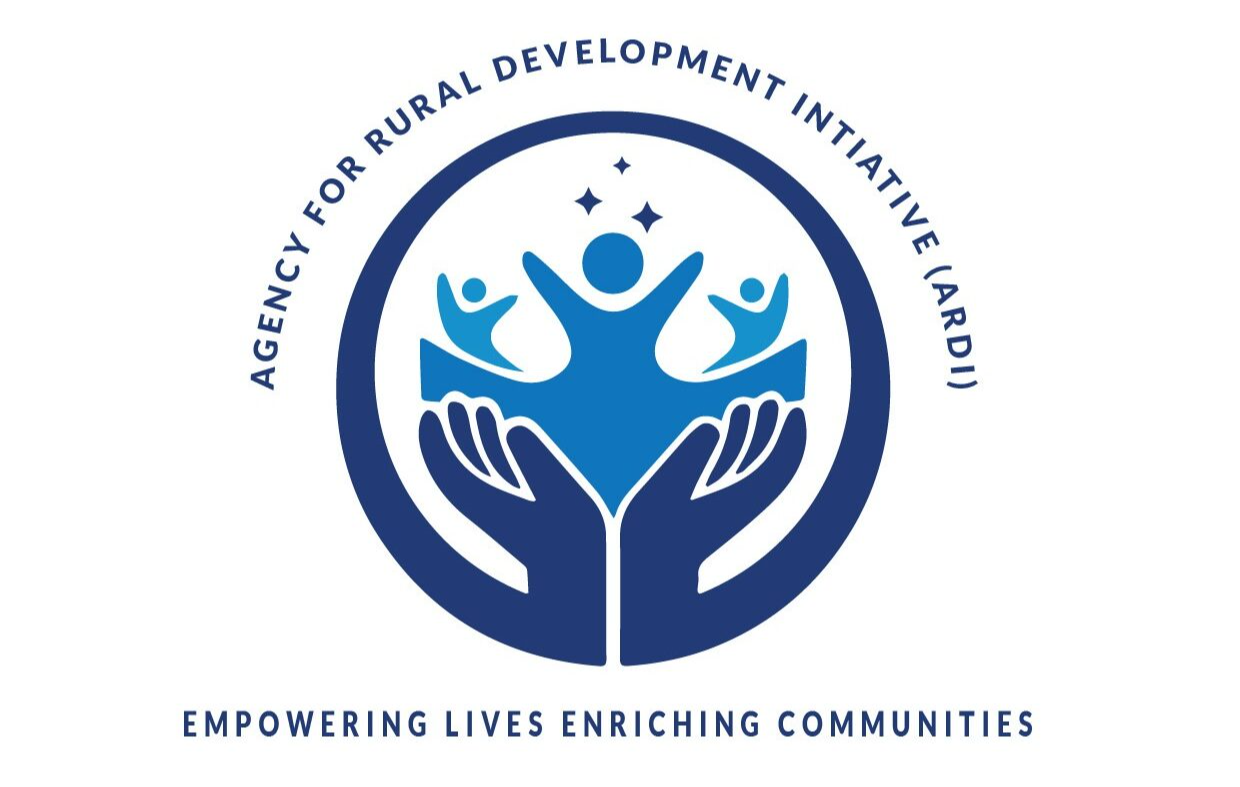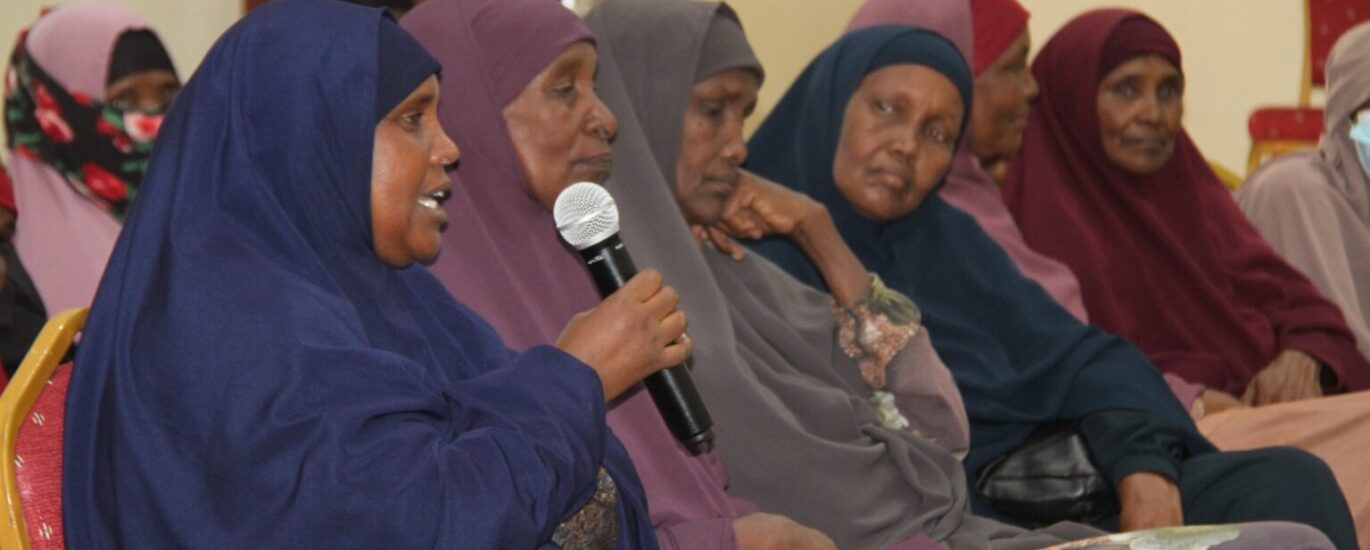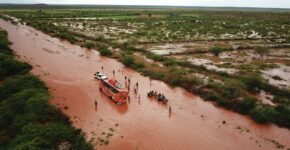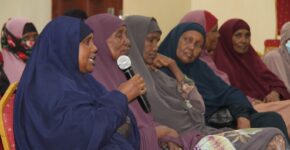“Women are the backbone of society. They are the most affected during conflict as their husbands and sons die, but they can also be inciters or drumbeaters of conflict.” Barwaqo Ahmed, County Gender Officer, Mandera.
In the remote region of Rhamu, located in northeastern Kenya near the Ethiopia border, there is a ray of hope amidst conflict. This area, which is about 73 kilometres to the west of Mandera County, has long been plagued by violent conflicts and forced relocations brought on by deeply rooted clan-based disputes. The conflict in Rhamu stems from territorial disputes and has had devastating consequences for the local communities. The violence, displacement, and profound socio-economic losses have left lasting trauma in their wake. Tensions have escalated between the Degodia and Murulle communities, particularly in Rhamu and Sala, which are located just 9 kilometres east of Rhamu. In response to this alarming rise in hostilities, efforts were made not only to address the immediate crisis but also to redefine the role of women in the broader peace process. In this context, a significant initiative has emerged to place women at the forefront of fostering peace and reconciliation efforts.
In October 2023, Interpeace and the Network for Peace, Cohesion, and Heritage (NEPCOH) organised a two-day women-only dialogue meeting. The event aimed to complement ongoing ceasefire initiatives by providing a dedicated space for 51 women from Rhamu and Sala to engage in dialogue. The objective was clear: to let the voices of these women resonate and contribute significantly to the ongoing pursuit of peace. The outcomes of this dialogue were far-reaching. A comprehensive strategy was developed, leading to the formation of a seven-woman grassroots committee, each representing the Murulle, Garre, Corner tribe, and Degodia communities, under the leadership of Zahara Bashir Ali, a member of the Board for NEPCOH and an active participant in Interpeace’s Kenya Programmes working group. This committee took on the task of actively promoting peace and harmonious coexistence among the communities in Rhamu and Sala.
The women-led grassroots committee hopes to advance the peace process in Sala and Rhamu by advocating for a ceasefire and implementing strategic tasks and interventions. By organising gatherings that bring together diverse groups, claiming their presence and voices in decision-making procedures, and assuming the role of early warning systems to stop conflicts from getting worse, they pledged to foster peace and reconciliation.
While the aftermath of the conflict has shown a decrease in violence, challenges persist, particularly for women. They navigate a delicate environment of fragile trust and limited social interaction. However, these women have discovered the power of sharing their personal stories. Their conversations revealed a remarkable familiarity, whereby they could readily identify one another by name, family connections, and their respective places of origin. The unexpected eruption of conflict was acknowledged as a collective shock, prompting a firm commitment to collaborate and disseminate peace throughout their communities.
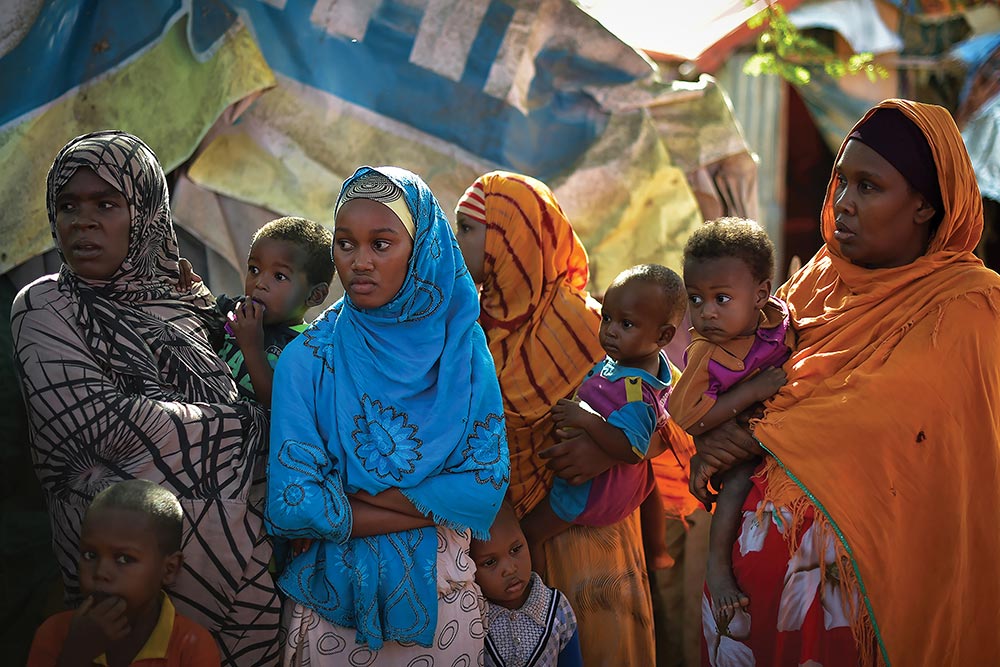
“In Rhamu, we have been working for a long time, and a period of peace has been achieved. Now that some misunderstanding has taken place between two communities, we have seen it fit to engage the women in our peace dialogue meeting,” said Maalim Mahat, NEPCOH.
The journey towards lasting peace in Rhamu and Sala, with the support of the Federal Foreign Office of Germany, showcases women’s key role in transforming conflict-ridden areas. This initiative is not just a community triumph but a global call to embrace and amplify the unique contributions made by women in peacebuilding efforts.

